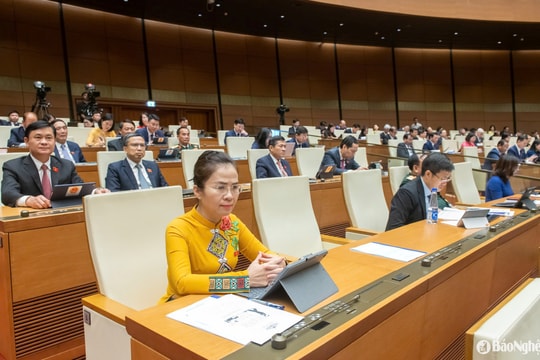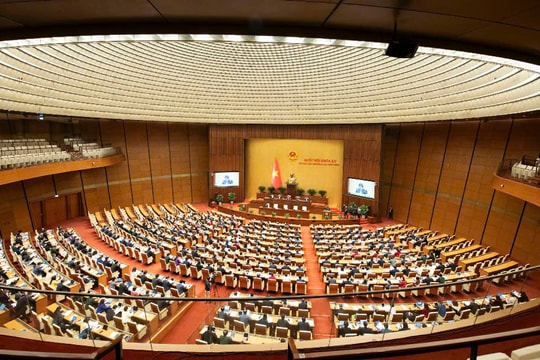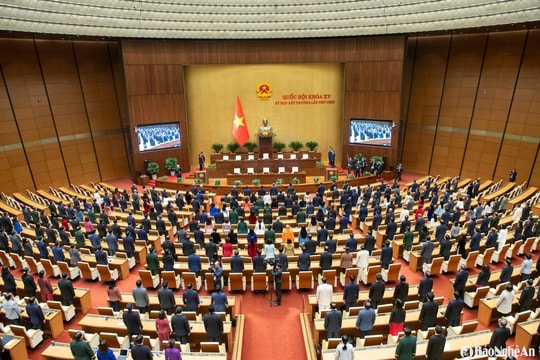National Assembly Delegates of Nghe An Delegation discuss amendments and supplements to draft laws
On the afternoon of May 8, National Assembly deputies discussed in groups the following contents: Draft Law on amending and supplementing a number of articles of the Law on Organization of People's Courts; Draft Law on amending and supplementing a number of articles of the Law on Organization of People's Procuracies; Draft Law on Inspection (amended).
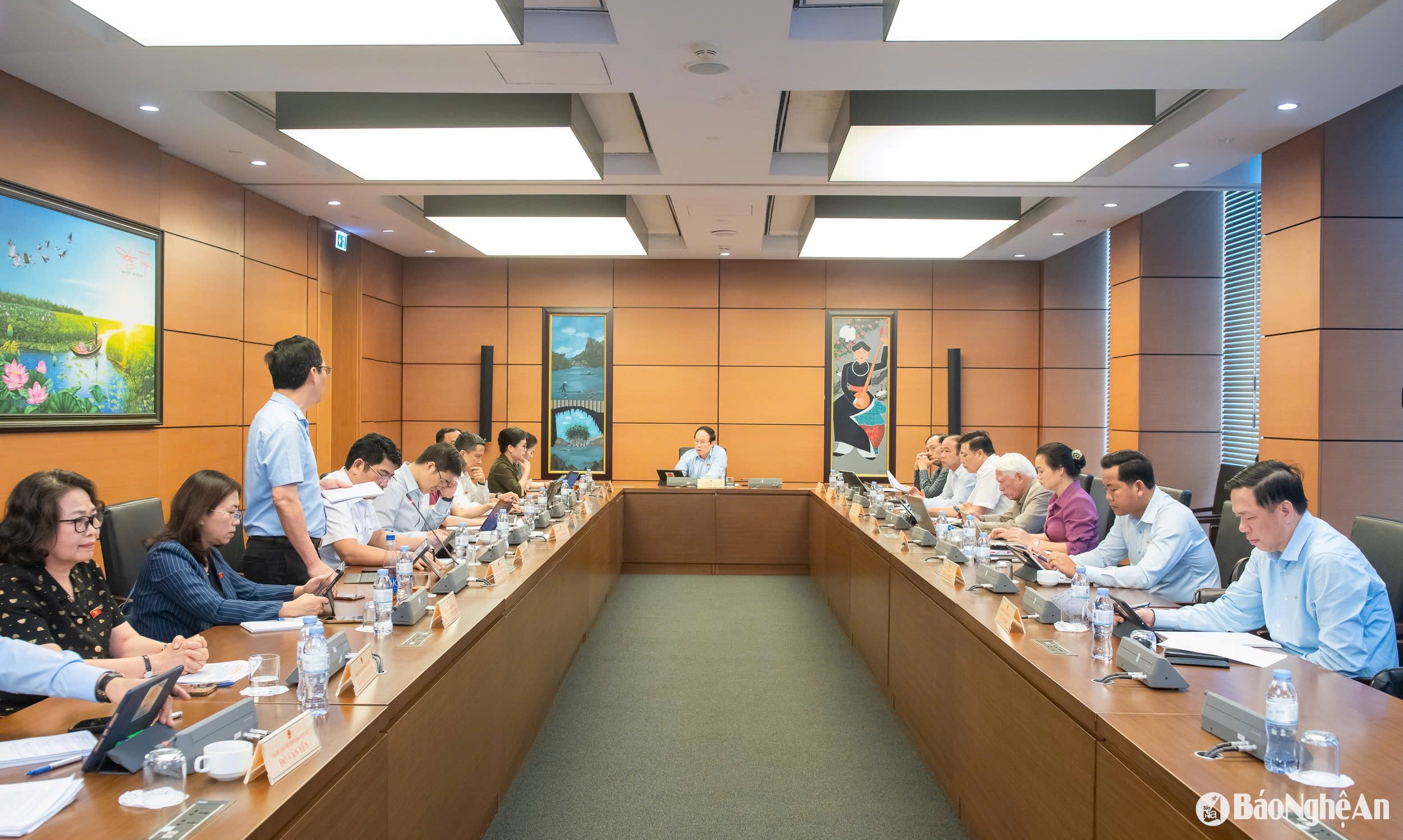
During the discussion, delegates highly agreed on the need to amend, supplement and promulgate draft laws to institutionalize the Party's policy on streamlining the organizational apparatus and abolishing district-level governments. The amended and supplemented draft laws promptly overcome previous limitations, difficulties and inadequacies.
Participating in the discussion, comrade Thai Thi An Chung - Member of the Provincial Party Committee, Deputy Head of the National Assembly Delegation of Nghe An province gave her opinion on the Draft Law on Organization of People's Courts (amended).
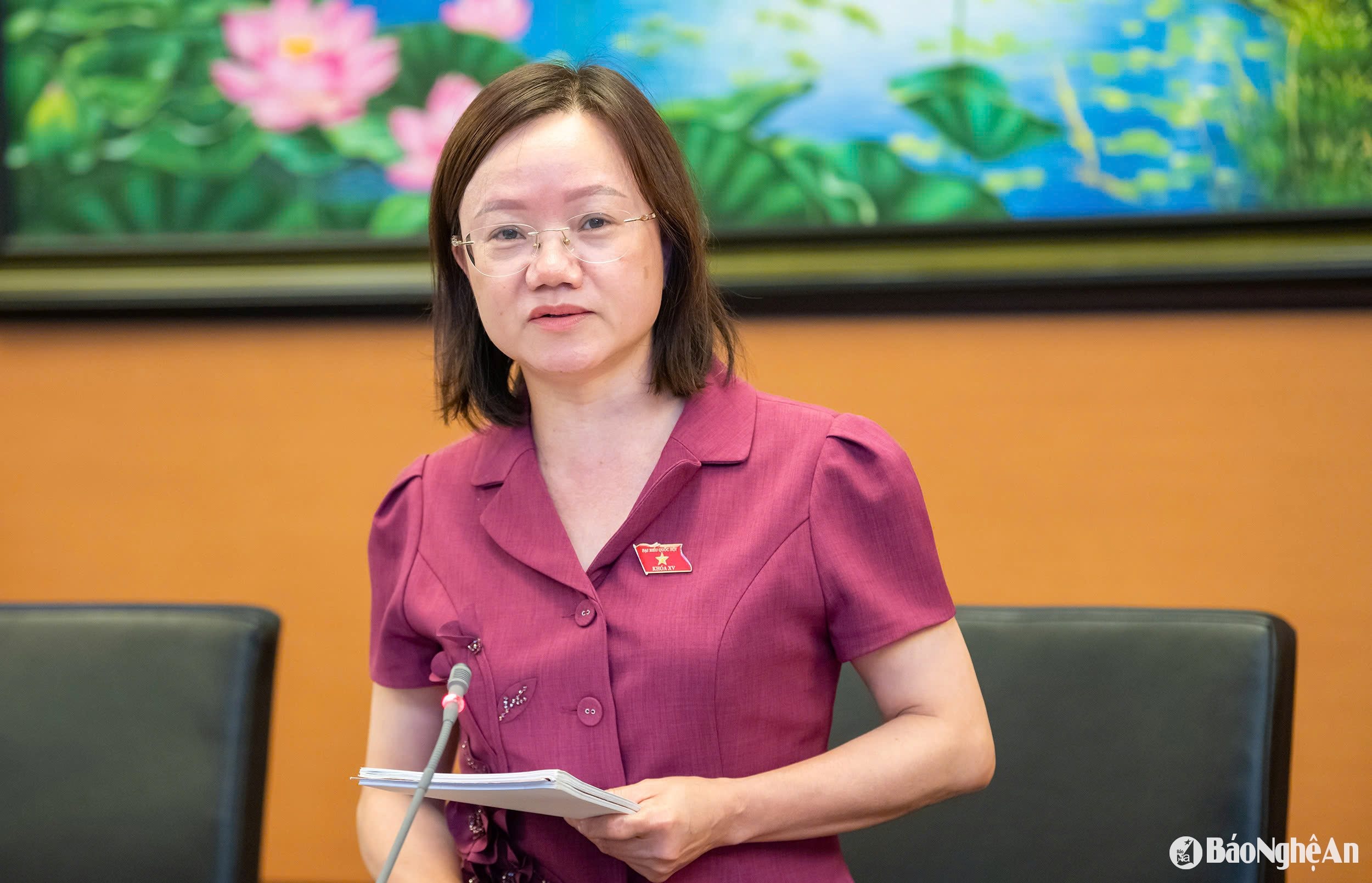
Regarding the election of people's court assessors, according to the Draft Law on Organization of People's Courts, it is stipulated that provincial-level people's courts will be responsible for selecting and proposing the need for the number, structure, and composition of assessors of provincial-level people's courts and regional people's courts so that the provincial Fatherland Front Committee can select and introduce qualified and qualified people to submit to the provincial-level People's Council for election for both provincial-level people's courts and regional people's courts.
However, National Assembly delegate Thai Thi An Chung pointed out that in Nghe An province, it is expected that there will be about 11 regional courts after the implementation of administrative unit arrangement at all levels and the establishment of a 2-level local government. Thus, together with the people's assessors of the provincial people's court, there will be 11 assessors of the regional people's court. Correspondingly, there will be 12 people's assessors who will be presented by the provincial court in coordination with the provincial Fatherland Front Committee to the provincial People's Council for election.
Delegate Thai Thi An Chung wondered whether there would be 1 people's assessor performing the same duties as the regional court and the provincial court or whether there would be 12 people's assessors, including 1 provincial people's assessor and 11 regional court people's assessors.
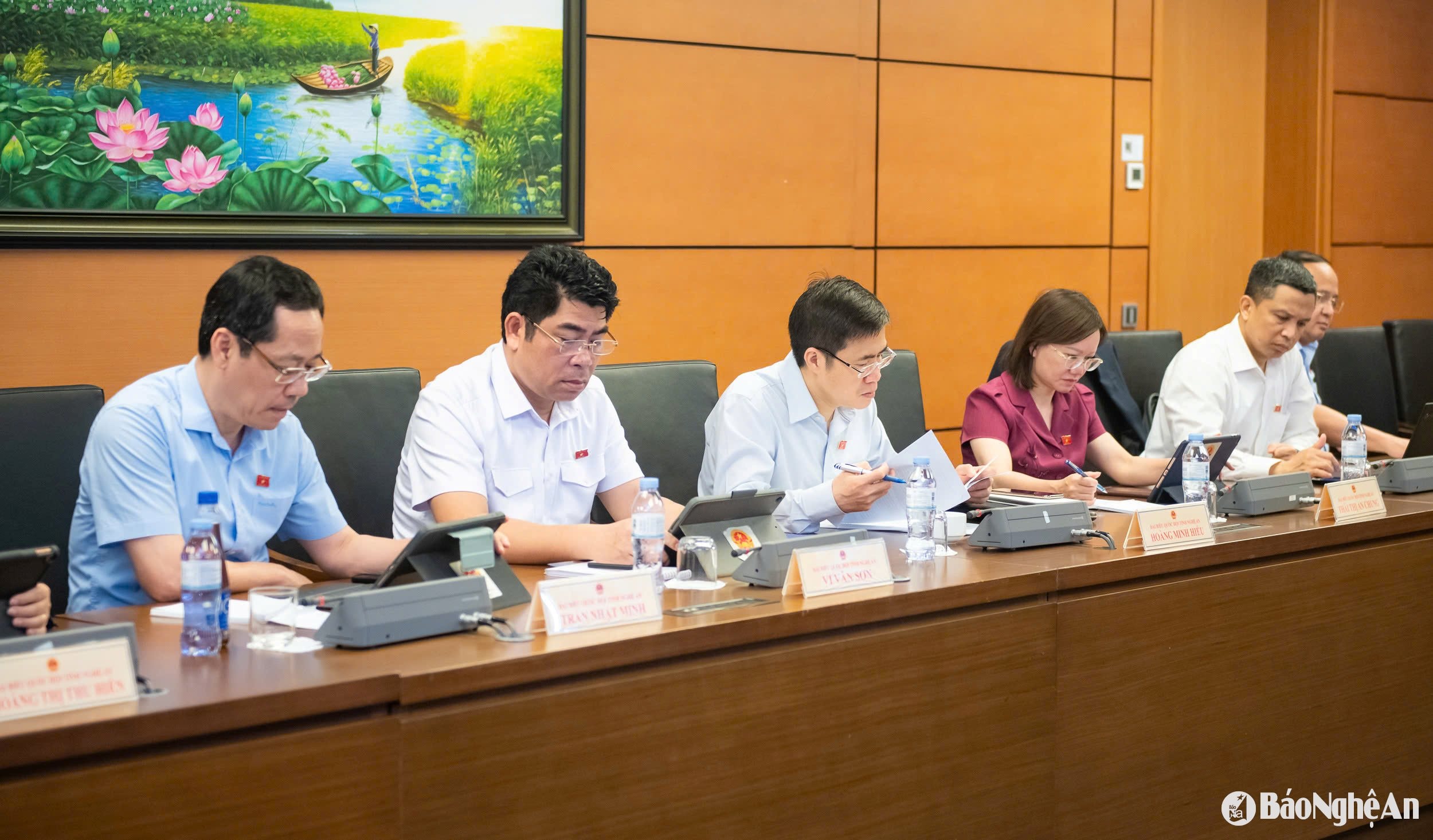
To be consistent with the two-level local government model and the nature of people's assessors as representatives of the people in participating in court trials, demonstrating democracy as well as supervising the activities of the prosecution agencies, National Assembly Delegate Thai Thi An Chung proposed that the regional people's court coordinate with the Fatherland Front Committees of communes in the region to introduce and submit to the People's Councils of communes to elect assessors.
Similar to the work of electing court jurors, delegate Thai Thi An Chung said that there needs to be decentralization in the dismissal, removal or trial of regional people's court jurors to suit the two-level local government as well as reduce the workload for the Chief Justice of the provincial People's Court.
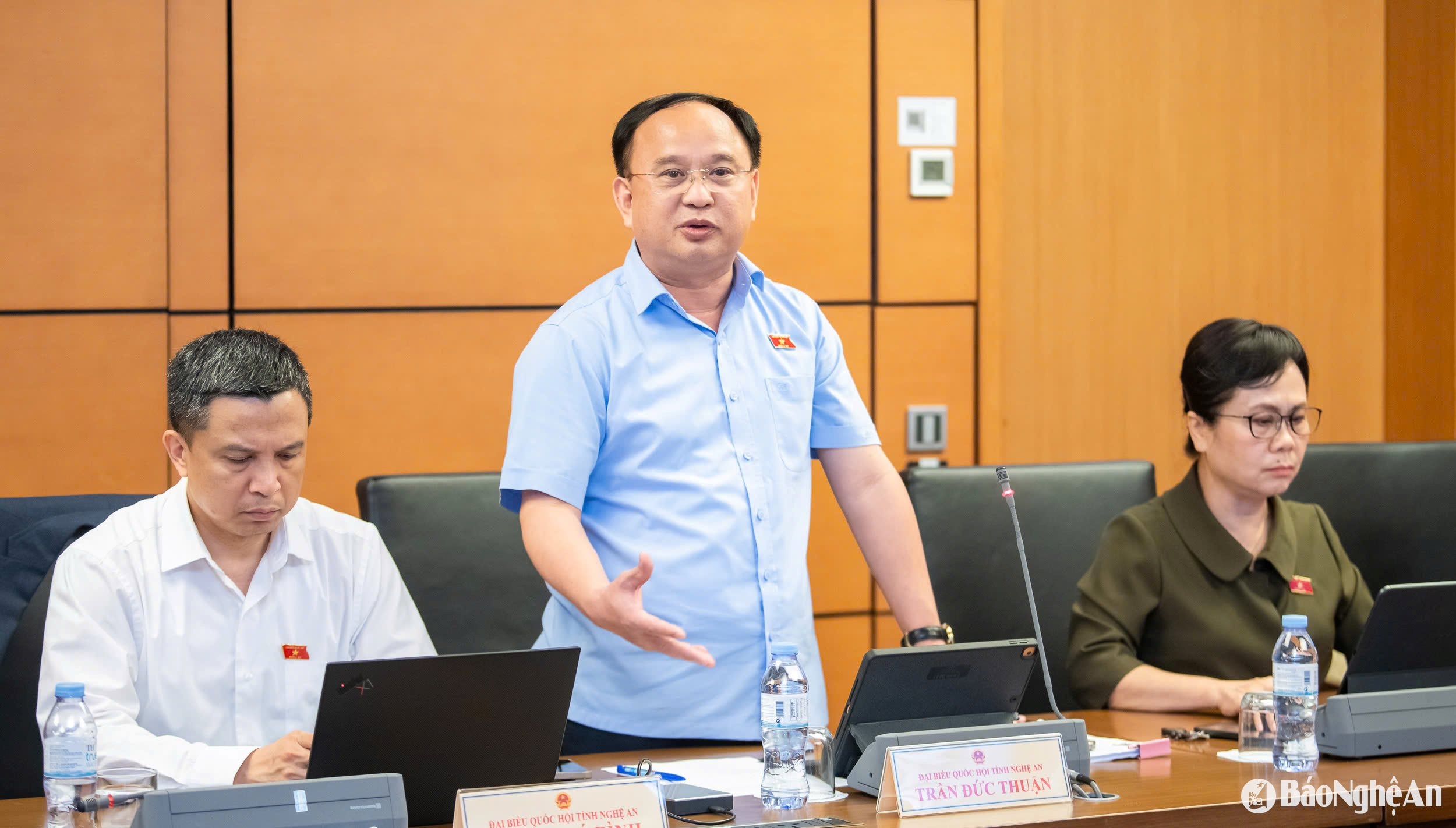
Participating in the discussion, Major General Tran Duc Thuan - Standing Member of the National Assembly's Defense and Security Committee, delegate of Nghe An delegation, said that at present, the National Assembly is also amending many laws related to the judiciary, so the drafting agency and the reviewing agency coordinate closely to ensure that the recently promulgated laws related to the judiciary, including the Law on amending and supplementing a number of articles of the Law on Organization of the Procuracy, the Law on amending and supplementing a number of articles of the Law on People's Courts, are consistent and unified, avoiding the case of multiple amendments.
Regarding the new regulations on titles and ranks of prosecutors stipulated in the Draft Law on Organization of the People's Procuracy, delegate Tran Duc Thuan said that it is appropriate and has the effect of motivating and encouraging prosecutors to strive, practice and improve their awareness in professional work and performance of duties.
However, delegate Tran Duc Thuan expressed his concerns and asked the drafting agency to explain further about the removal of the entrance exam for appointment and promotion of inspectors. At the same time, there should be policies on regimes and salary levels for each rank to motivate the inspectors in performing their professional duties.
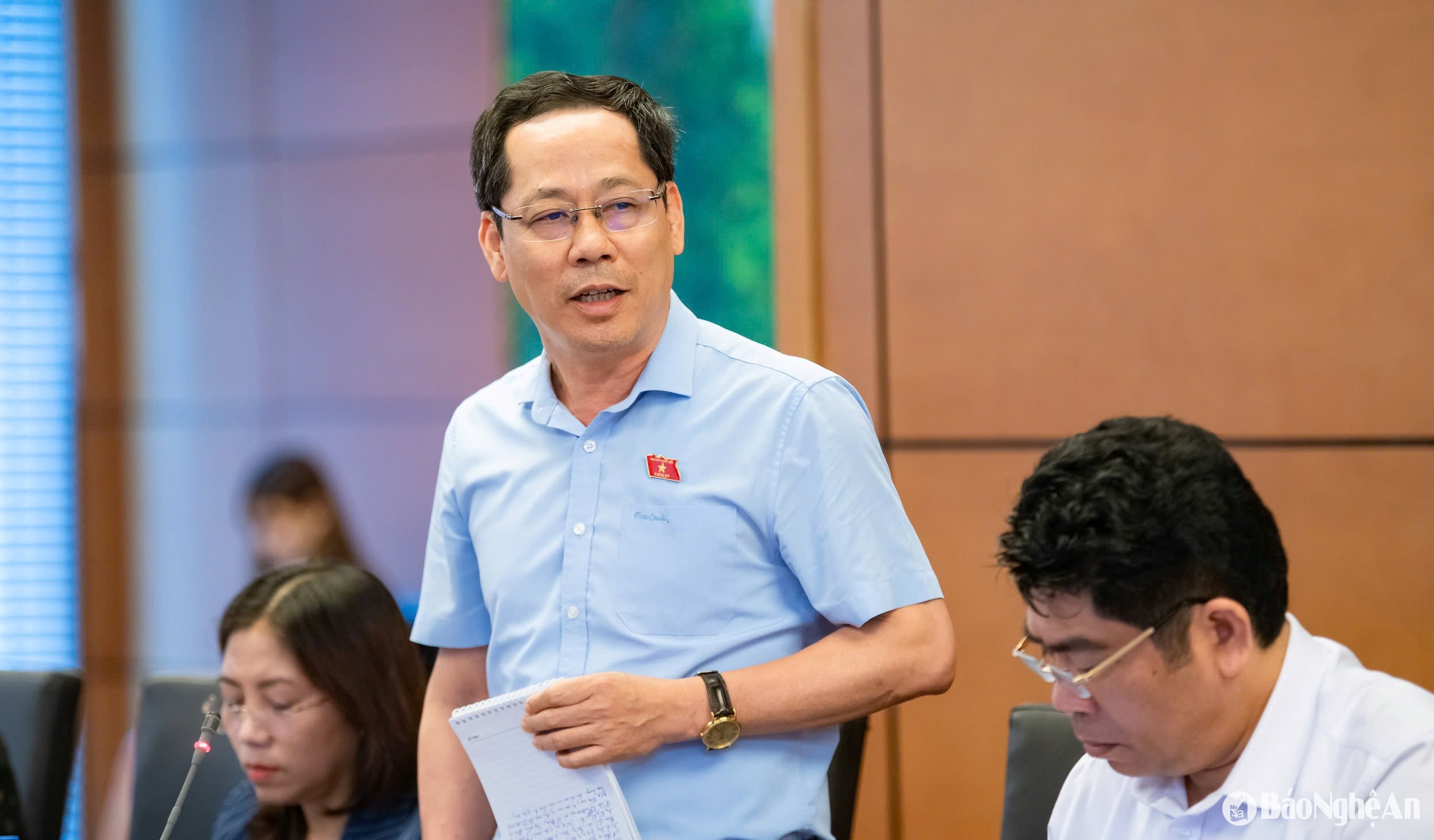
Regarding the Draft Law on Inspection, Mr. Tran Nhat Minh - Member of the Law Committee of the National Assembly, full-time National Assembly delegate of the National Assembly Delegation of Nghe An province, expressed his opinion that it is necessary to specify the necessary cases where the Chief Inspector of the Government is requested to request the Minister, Head of the ministerial-level agency, Chairman of the Provincial People's Committee to assign civil servants with appropriate expertise to join the Government Inspectorate's Inspection Team; the Provincial Chief Inspector is requested to request the Director of the Department, Chairman of the Commune People's Committee to review, rectify and overcome violations in the industry, field and area under the management scope discovered by the Provincial Inspectorate through inspection.
In addition, delegate Tran Nhat Minh also raised a number of issues that need to be clarified in the draft law related to job positions, organizational structure, functions, and tasks when mobilizing local officials to participate in provincial and ministerial inspection teams; timeline for developing, promulgating, and orienting inspection programs and plans.
In addition, it is necessary to carefully review cases with regulations on transition of inspection work in the period before and after the reorganization of the apparatus at all levels, the establishment of a two-level local government, and the termination of district-level inspection activities, ensuring completeness and creating favorable conditions for inspection agencies and inspection units, and not leaving legal gaps and creating difficulties and problems.


